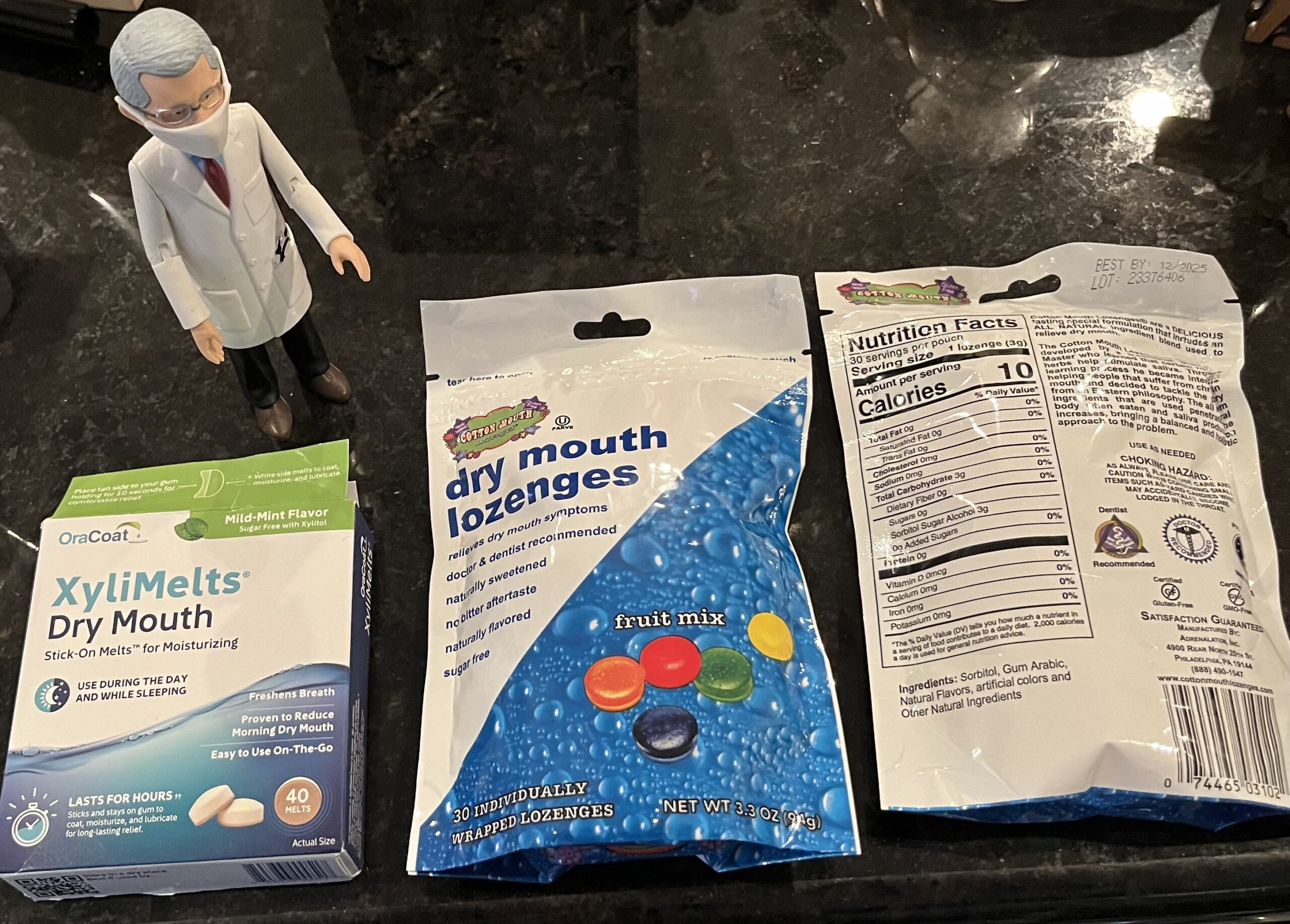Consumer Diary: Xylitol

Audio By Carbonatix

Under Dr. Fauci’s watchful eyes, I found this bag of Cottonmouth Dry Mouth Lozenges with no xylitol or erythritol. Photo credit: Harlan Levy
Consumer columnist and West Hartford resident Harlan Levy has more than 20 years of experience writing stories about everyday experiences that anyone could encounter.

Harlan Levy. Courtesy photo
By Harlan Levy
Ever woken up in the middle of the night with “dry mouth”?
Two years ago my periodontist recommended using low-calorie, sugar-free Xylimelts lozenges, which slowly dissolve through the night, and I’ve been putting one in my cheek ever since: Problem solved! Or so I thought until I read about a new study by the Cleveland Clinic finding that xylitol, a key sweetness ingredient of my Xylimelts, is linked to an elevated risk of heart attacks or strokes.
With my recent diagnosis of congestive heart failure in mind I stopped my Xylimelts habit cold turkey. And I searched for a non-xylitol dry-mouth lozenge.
First what is xylitol? As defined by the Cleveland Clinic, it’s both a natural compound we make in our bodies and a sugar alcohol additive used in food manufacturing. It can also be found in the grocery store bakery section sold as a sugar replacement and often found in dental care products like toothpaste and mouthwash.
The Cleveland Clinic study’s author, Stanley Hazen M.D., said, “Our studies show that elevated blood levels of xylitol contribute to heightened platelet reactivity and are associated with an enhanced risk for cardiovascular events, like heart attacks and strokes” especially for people whose bodies make high levels of xylitol, because it can make the platelets in your blood more likely to clot – causing serious heart events.
In the study healthy volunteers were given a drink sweetened with 30 grams of xylitol similar to the amount found in a single scoop of keto-friendly ice cream or several cookies for people with diabetes.
In every volunteer studied, platelets were significantly more prone to clot after consuming xylitol.
“In the presence of xylitol, platelets become much more angry and ready to clot,” Dr. Hazen reported. “It’s as if our platelets have a kind of taste bud receptor for xylitol that makes them go into overdrive. And that’s very significant because enhanced clotting can stop blood flow.”
The result of stopped blood flow? Heart attack, stroke, and other life-threatening cardiovascular events.
The findings are similar to what Dr. Hazen and his team found in studies of erythritol, another common sugar alcohol.
Dr. Hazen also said that using toothpaste or mouthwash with xylitol isn’t likely to have the same risks.
“We know that xylitol in your oral care products can help fight cavities,” he said. “And since you don’t ingest those products in large amounts, they’re still OK to use.”
Sugar or honey are better alternatives, the study suggested, including natural sources of sugar, like fruits.
My alternative
I searched for a lozenge without xylitol and found Cottonmouth Dry Mouth Lozenges, which unfortunately dissolve almost immediately. So I keep a bag of them by my side of the marital bed.
Now, check out your purchases for xylitol and eliminate an unnecessary risk.
NOTE: If you have a consumer problem, contact me at [email protected] (“Consumer” in subject line), and, with the power of the press, maybe I can help.
Like what you see here? Click here to subscribe to We-Ha’s newsletter so you’ll always be in the know about what’s happening in West Hartford! Click the blue button below to become a supporter of We-Ha.com and our efforts to continue producing quality journalism.




Very useful, thank you! I read this column every week even though I no longer live in West Hartford.